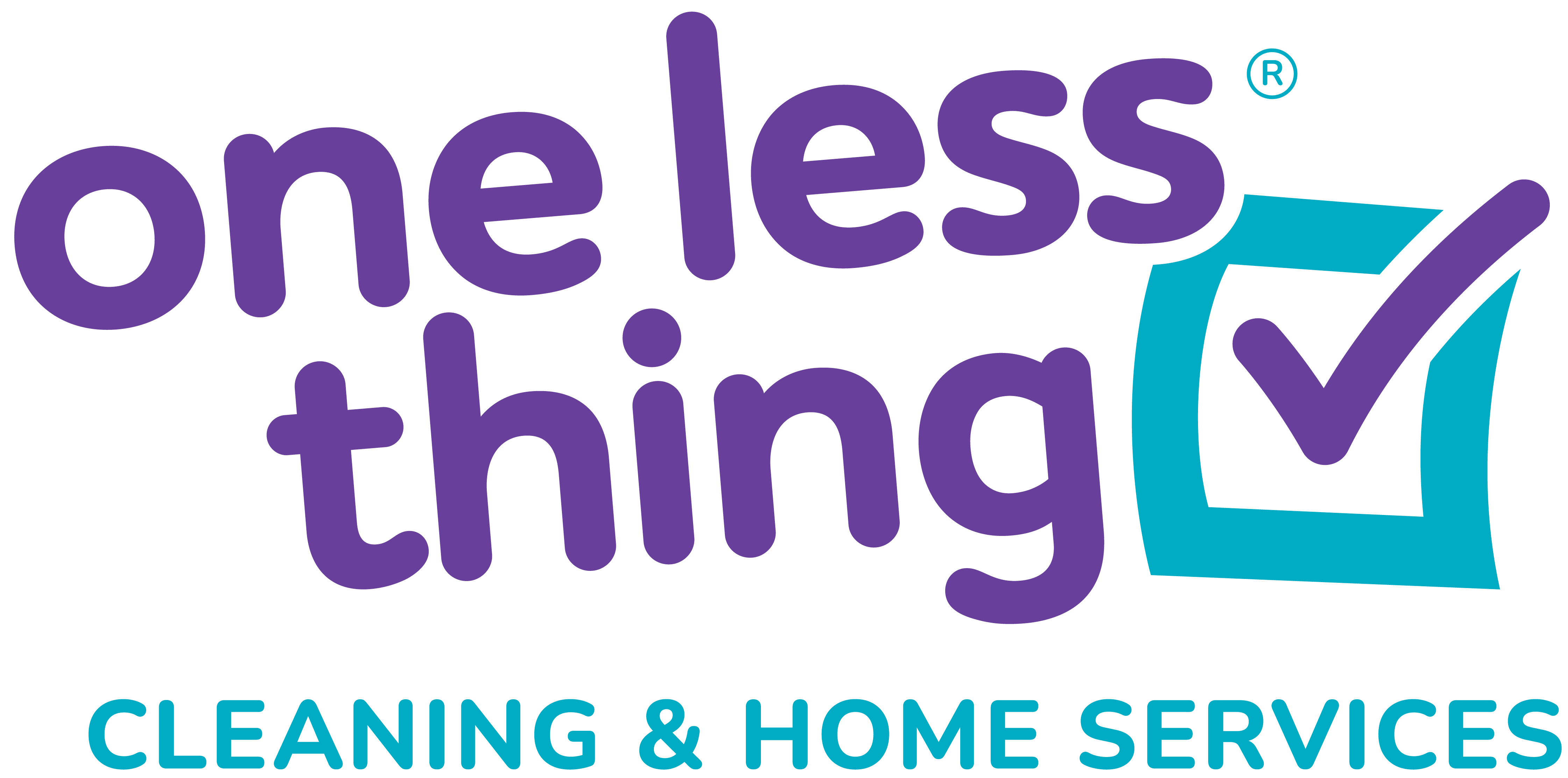How to Become a Self Employed Domestic Cleaner
The demand for domestic cleaners is at an all-time high, with one in four British households now hiring a regular cleaner. So, there are plenty of opportunities for those looking to join the domestic cleaning profession. In fact, around 5% of the UK workforce is already involved in cleaning or related work, and more people are expected to join the industry every year.
There are so many benefits to becoming a self-employed cleaner. You’ll have the opportunity to make a real difference in your customers’ lives, you can choose the hours that suit you, and with so many people looking for professional home cleaning services, there’s lots of house cleaning work available.
In this complete guide, you’ll learn everything you need to know to become a self-employed cleaner. I’ll walk you through the steps you need to take to set up, find clients, provide fantastic service, and earn a steady income.
So, read on to begin your journey into a new and fulfilling career!
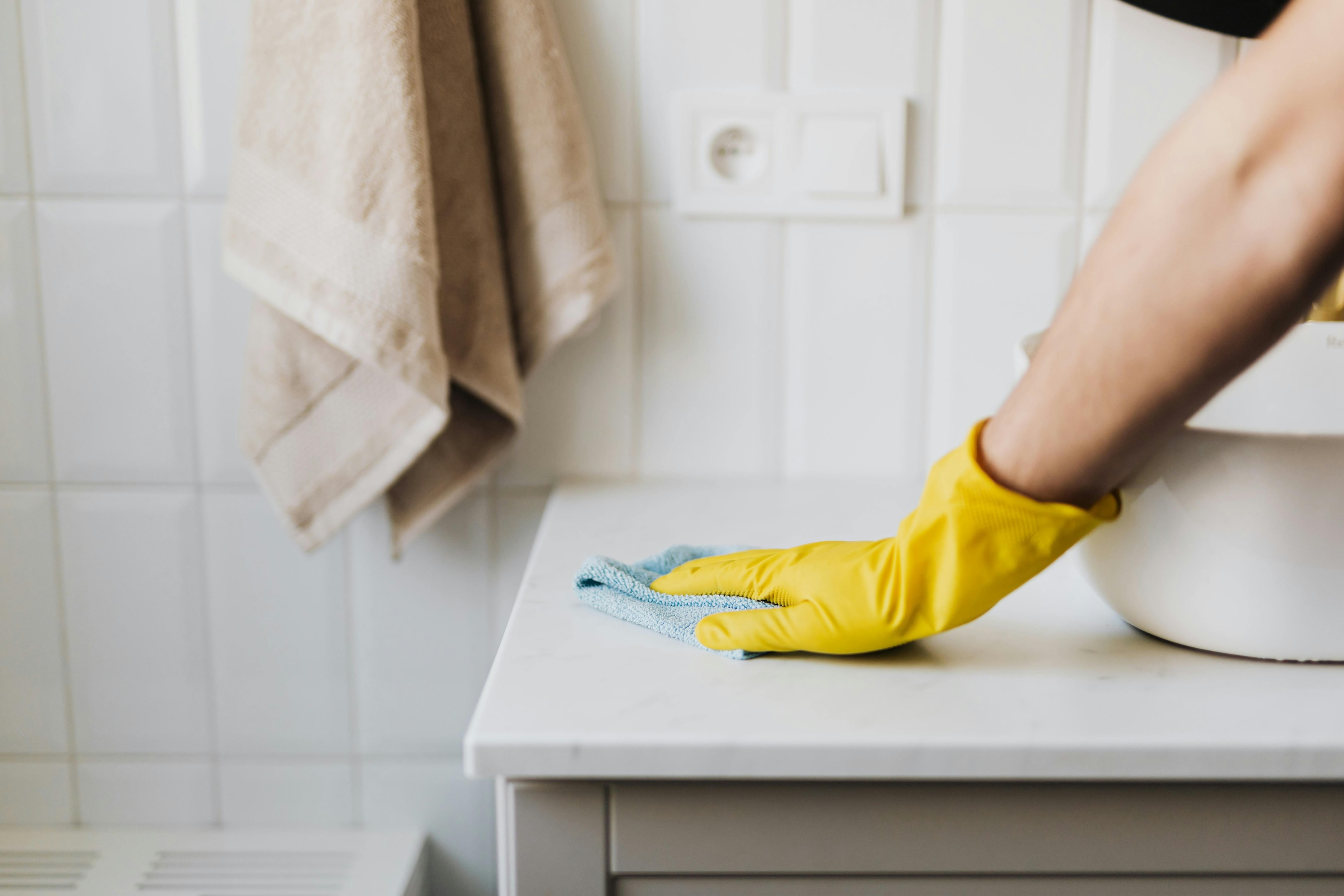
What are the different types of domestic cleaning business?
Before we dive in, let’s define the different types of domestic cleaning businesses.
- Self-employed cleaners
Someone who is great at cleaning and works for clients to clean their homes. - Cleaning business owners
A cleaning business owner is someone who arranges domestic cleaning services that are provided by a team of cleaners. They don’t necessarily clean homes themselves (although some do).
Self-employed cleaners vs. own cleaning business
Some people who start out as self-employed cleaners eventually grow a team around them, and create their own cleaning business over time. This is one of the most common ways that small cleaning businesses operate. Many people find success with this route, however, it comes with its challenges.
Being a great self-employed cleaner takes different skills compared to running a great domestic cleaning business. That doesn’t mean you can’t do both, but it’s a good idea to think about where your strengths lie, and which tasks and activities you enjoy most.
Most people with their own cleaning business only start to make a profit once they have a larger pool of cleaners and clients. But self-employed domestic cleaners can make a good wage almost immediately, with just a handful of regular clients.
Take a look at the table below to help you determine which role would suit you best:
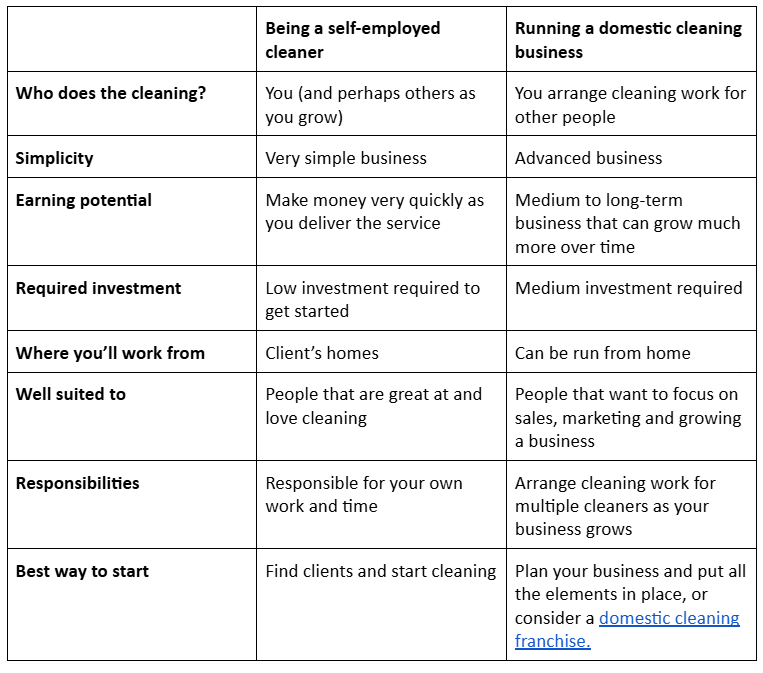
In this article, we’ll solely focus on what you need to become an excellent self-employed cleaner – making money by working flexibly cleaning people’s homes.
If you’d like to grow a business arranging domestic cleaning provided by a team of cleaners, take a look at our ‘How to start a domestic cleaning business’ article (coming soon).
What skills do I need to be a self-employed cleaner?
Being a great cleaner takes much more than just cleaning skills. To be successful, you also need the following qualities:
Punctuality & friendliness
- Arrive on time or a few minutes early.
- Have a positive attitude and greet clients with a smile.
- Be friendly but brief. Know when to stop chatting and focus on cleaning!
Communication
- Clearly communicate your availability and appointment times.
- Be empathetic to the client’s cleaning needs.
- Set realistic expectations with your clients about what can be accomplished during an appointment.
- Keep the client updated. For example, if you’re running late or unable to attend due to illness, let them know as soon as possible and offer to reschedule if necessary.
Reliability
- Keep an accurate diary (e.g. Google Calendar Android or Google Calendar iPhone/iPad). Once you’ve committed to a schedule it’s important to maintain it.
- Book your holidays in advance and, where possible, arrange cover to minimise disruption.
- Try to avoid rescheduling. Of course, things happen on occasion, but try to maintain consistency as much as possible.
- Building trust between yourself and your clients takes time. Be reliable, if you say you will be there – be there.
Partnering with an agency like One Less Thing means your clients will be provided with cover when you’re on holiday or off sick. So, you can take time off without added stress!
Responsibility
- As you progress you’re likely to become quicker and more effective at cleaning. Use any extra time wisely by taking on value added services (such as ironing, hanging clothes to dry, or folding laundry).
- Make sure all lights are off, and all doors and windows are secured before leaving the property.
- Keep keys safe. Some clients may provide you with a key. Take this responsibility seriously by keeping it in a secure safe place and labelling it with a discreet identifier (never the address).
Efficiency
- To efficiently clean a room, work with a top-to-bottom/ left-to-right system. This eliminates cleaning the same areas twice.
- Clean the floors last. Hoover/mop yourself out of the room.
- Use a cleaning checklist to make sure you achieve a high standard (feel free to use our One Less Thing domestic cleaning checklist).
Consistency & attentiveness
- You can become ‘stuck in a rut’ cleaning the same homes week after week, so try refreshing your routine from time-to-time. For example, start with the kitchen, rather than the bathrooms, or finish downstairs last.
- Change your perspective. A view from a different angle can highlight missed marks that can only be seen from below, or when the light hits differently.
- Keep your mind in the game. Cleaning requires physical and psychological stamina, and to build trust, you need to commit to keeping a high standard.
- Double check your work, including things like skirting boards and interior windows. Don’t forget to look up for cobwebs!
Honesty and respect
- Be reliable and trustworthy. Arrive on time and if you finish before the end of the appointment, never leave early. There’s always something else you can clean!
- Clean for the entire duration of the appointment.
- Treat every customer’s home and equipment with respect.
- Let the customer know if you damage or break any items.
Discretion
- Be respectful around mail or other personal/confidential items while you’re in a customer’s home.
- Do not snoop; be discreet and professional.
- Never disclose personal information on social media or via text.
- Never take before and after photos without express permission from the customer.
Knowledge
- Research your products and understand how to use them safely and effectively.
- Take steps to avoid cross contamination across surfaces, eg. colour coded cloths.
- Learn how to operate your (or your client’s) cleaning equipment correctly.
Physical fitness
- A 2-3 hour cleaning shift can feel like the equivalent of a gym session, so make sure you’re physically prepared for the challenge.
- Look after your body by paying attention to your movements and posture. For example, avoid slouching or stooping while vacuuming or cleaning skirting boards.
- Stretch at the end of each day to loosen stiff muscles.
- Avoid overloading your schedule and prioritise time for rest.
What does a domestic cleaning visit typically include?
Each customer has their own preferences and priorities, but in a standard domestic clean, expect to carry out the following in every room of the house:
- Dusting all surfaces, including skirting boards.
- Cleaning worktops and appliances.
- Cleaning interior windows, the outside of cupboards and cabinets, light switches, and other fixtures and fittings.
- Hoovering and mopping floors
Some clients may also ask you to help with tasks such as washing up, loading and unloading the dishwasher, hanging laundry, or ironing.
Cleaning tasks which aren’t part of a standard domestic clean include:
- Carpet cleaning.
- Deep oven cleaning.
- Hoarding or biohazard cleaning.
- End of tenancy cleaning.
- Post construction cleaning.
These tasks require specialist equipment and/or training.
How long should each visit take?
This depends on how big the house is, how many bedrooms and bathrooms it has, and the condition of the home.
Other things to consider are if the customer has pets, if additional services (eg. ironing) are required, and how often the home is cleaned.
The first clean usually takes the longest, especially if the home hasn’t been regularly maintained. Once you have each room to a good standard and you get used to the layout of the house, you’ll probably start to work faster. This is why it’s a good idea to begin with a deep clean before switching to standard cleaning appointments.
How often should cleaning take place?
This depends on the customer’s needs and wishes.
Weekly cleaning appointments ensure that a home is kept in tip-top shape. However, many clients prefer fortnightly or even monthly visits due to budget restrictions. Less frequent cleans require more time, so it’s important to manage a customer’s expectations and allocate extra hours where needed.
15 steps to becoming a self-employed domestic cleaner
If you think you have what it takes to be a great cleaner, you’re in the right place. Follow these 15 steps to create your own thriving solo business.
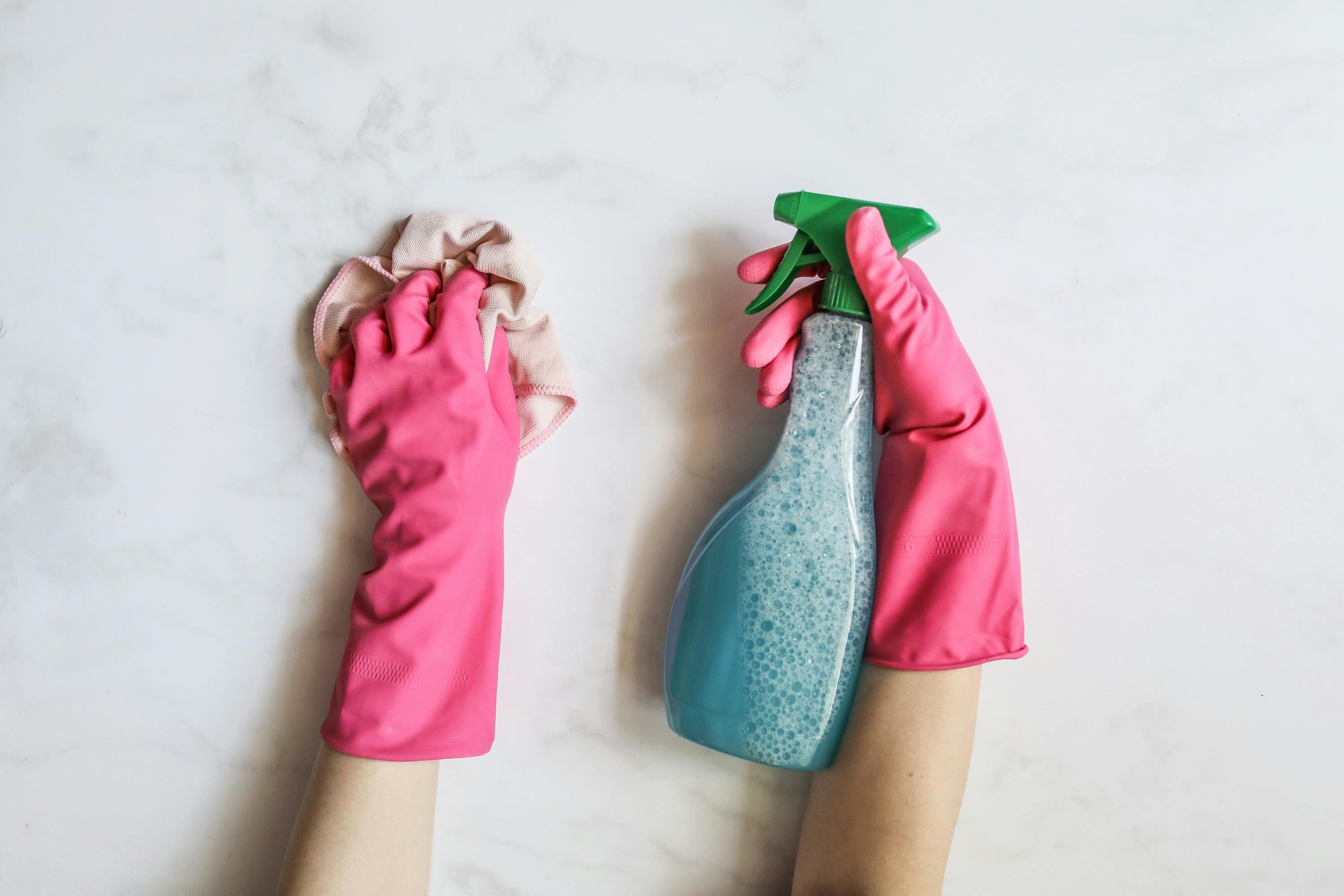
Step 1: Conduct market research
Who is your target market? Do they live nearby? Factor in travel expenses and the time it will take to travel between each client.
When you clean with One Less Thing, you can choose the distance you’re willing to travel, and we’ll match you with clients in your area, saving you money and time.
Are your future clients working professionals, families with young children, students, or elderly people who need extra assistance? Different demographics will demand different services. For example, many people today prefer to clean their homes with all-natural, environmentally friendly products. Busy professionals might prefer evening and weekend slots to work around their schedules. And areas with a lot of students will often have landlords looking for end of tenancy cleaning services.
You can conduct your market research by talking to friends, family, and acquaintances. Or, post in your local social media groups to ask what kind of services people are interested in.
Step 2: Do I need a business name?
Many cleaners advertise their services using their own name. This makes it clear that you’re a solo operation and also adds a personal touch, which many customers prefer.
However, if you plan on expanding into a fully fledged cleaning business in the future, or you simply want to create a more professional brand image, it’s a good idea to choose a business name and design a logo to match. Just remember that most people prefer a personalised approach, so keep it simple and incorporate the elements that make your services stand out.
Step 3: Source equipment and supplies
Becoming a self-employed cleaner has lower start up costs compared with many businesses, but you still need to spend some money on equipment and supplies. Here’s a basic list of the things you may need:
- An all-purpose cleaning spray suitable for most surfaces.
- Glass cleaner for windows and mirrors.
- Bathroom cleaner.
- Floor cleaner suitable for different types of surfaces, eg. wood or tile.
- Wood furniture polish.
- Kitchen degreaser.
- Microfibre cloths (ideally in different colours).
- Spongers and scourers.
- Yellow dusters.
- An extendable duster to reach high places and catch cobwebs.
- Gloves.
- Bin bags (large and small).
- A dustpan and brush.
- A mop and bucket (or steam mop).
- A good quality vacuum cleaner with attachments.
- A cleaning caddy to store all of your equipment in.
- A small set of steps to help you reach higher areas.
This might seem like a lot to purchase all at once, but ordering products in bulk can save you money compared with buying separate items from the supermarket.
That said, it’s important to choose good quality products and equipment that will make your job easier in the long run, and help you become a better cleaner.
If you partner with One Less Thing, all products and equipment are provided by the client, saving you potentially hundreds of pounds. Check out the table in Step 6 to see exactly how much you could save.
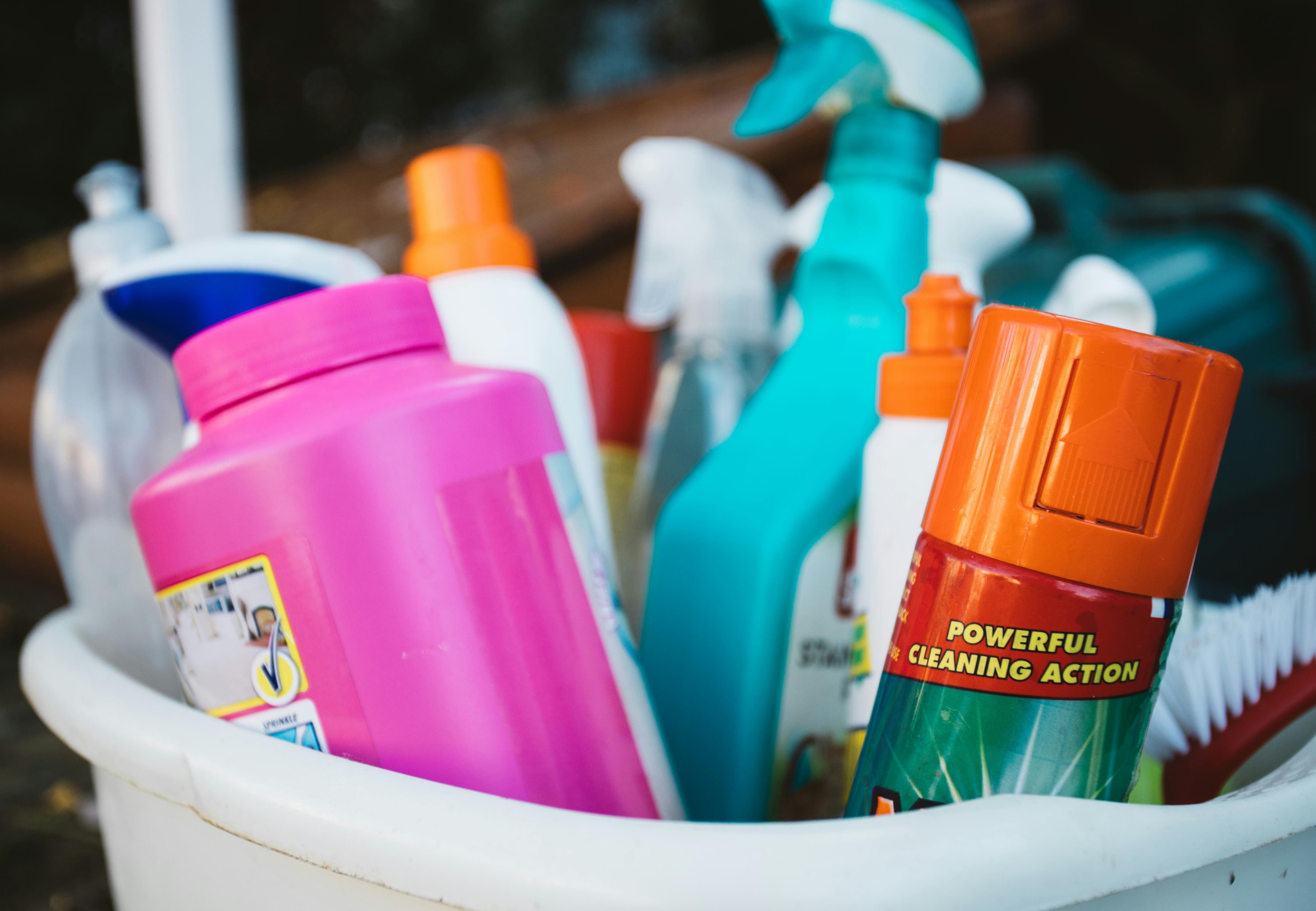
Step 4: Be sure you’re HMRC compliant and complete an annual self assessment tax return
When you become self-employed, you’ll need to register online as a sole trader with HMRC.
At this stage, there’s no need to register as a limited company, even if you plan on expanding your business further down the line. You can change status later when your business grows.
Registering self employment and remaining compliant is easier than you might think. There are currently around 4.3 million self-employed workers in the UK, and 3.5 million are sole traders.
As a sole trader, all you need to do is keep a record of your income and outgoings, and submit a simple self-assessment tax return each year. You will then be asked to pay income tax and national insurance based on your earnings. And you can do it all yourself, without the need for an accountant.
Step 5: Don’t forget insurance
Insurance is essential as it protects you financially if you accidentally damage a client’s property.
The type of policy you need is called public liability insurance. With public liability, if you accidentally spill a cleaning product on a client’s carpet, or break an expensive vase, the policy will cover the cost of the repair or replacement.
Public liability also covers you in the case of accidental injury to a third party while you are at work, for example, if your client slips and falls on a freshly mopped floor, or trips over the cable of the vacuum.
Public liability insurance can be expensive, but when you work with One Less Thing, there’s no need to purchase your own policy. We provide the cover for you, saving you potentially hundreds of pounds every year.
Step 6: Decide how much to charge (and how much you could earn)
Your earning potential depends on how much you work, and how much you charge per hour.
- How much do you want to work?
Be realistic and avoid over-committing yourself. If you take on too many clients or schedule too many cleans each week, you risk burning out and letting clients down. This will negatively impact your income.
That being said, to maximise your earning potential you should be open to working with a variety of clients. Some homes will be easier to clean, while others may need more time and skill to put back in order.
- How much should you charge per hour?
Selecting your hourly rate is one of the most important decisions you will make. Hourly rates for self- employed cleaners vary depending on where you live. Certain specialist services, such as end of tenancy cleaning and biohazard cleaning command higher than average rates.
If you’re supplying your own products and equipment, remember to factor these expenses into your hourly rate. You also need to consider tax, insurance, and other outgoings. That being said, it’s also important to keep your prices competitive, and avoid exceeding the going rate. This helps you attract more clients and increase your volume of work, leading to more income in the long run.
You might also decide to offer deals and discounts, for example, 10% off for seniors, or package deals which include an annual free clean.
Take a look at the cleaner’s section on our website to find out how One Less Thing cleaners earn in your area. Simply enter your postcode to find the hourly rate you’d receive (typically between £13-£16 per hour).
One Less Thing cleaners can maximise their earnings by focusing on what they do best-cleaning. We take care of all the admin, marketing, and sales.
Take a look at the table below to see the financial benefits of cleaning with One Less Thing.
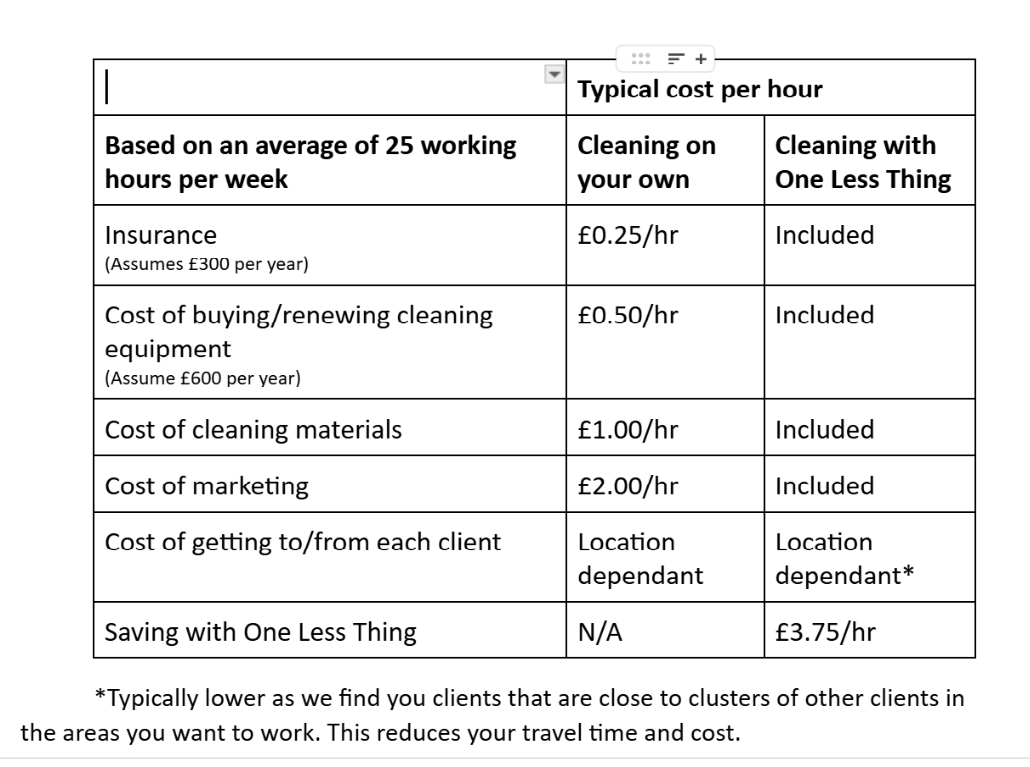
Step 7: Market your business and find your first clients
To find new clients it’s important to set aside time to market your business. There are multiple ways to do this, including
- Distributing flyers and business cards
If you’ve already chosen a business name and designed your own logo and branding, include this on your flyers and business cards.
Creating promotional materials takes time and money. You can pay to have them professionally made, or choose the less expensive option of designing and printing them yourself using a program like Canva.
- Advertising on Facebook and other social media platforms

Local facebook groups can be a good place to advertise your services, as you can target the specific areas where you’d like to work. However, you need to remain consistent and post regularly in order to see results.
- Word of mouth
Good old fashioned word of mouth is still one of the best ways to find clients. Once you have a small handful of regular clients, you may find they recommend you to family and friends.
The way you market your business can significantly impact your success. It takes a lot of time and energy to advertise effectively. Plus, there are certain costs involved, so you’ll need to spend money before you begin cleaning for clients.
It’s also a good idea to visit new clients before the first cleaning visit. This gives you a chance to view their home and understand their needs and wishes before you begin.
When you clean with an agency like One Less Thing, there’s no need to worry about marketing. We do all the hard work and find the cleaning jobs for you, so you can focus solely on being a great cleaner.
This also saves you money on advertising costs and frees up time that would otherwise be spent on finding new clients.
Plus, there’s no need to find clients in the right area, manage a complicated cleaning schedule, or arrange cover when you’re not available to work. We take care of all this for you, too.
Step 8: Provide excellent customer service
To be a great cleaner, you need to build trusting relationships with your clients by providing the best service possible.
You can do this by:
- Showing up on time for every clean.
- Having a positive and professional attitude.
- Maintaining attention to detail and checking your work.
- Giving notice of any holiday dates well in advance, and letting clients know as soon as possible if you’re ill.
- Seeking to constantly improve your service by asking for and acting on feedback.
- Learning how to handle negative feedback or complaints with professionalism and humility.
Cleaners who partner with One Less Thing have a point of contact to support them in any circumstance they’re not sure about. We organise cover when you’re ill or on holiday, and handle any difficult one-to-one conversations with clients on your behalf.
Step 9: Manage your schedule

When you clean for multiple clients, staying organised and managing your schedule is essential.
There are plenty of tools to help you do this, including calendar apps like Google Calendar and task management platforms like Asana. Or you can do it the old fashioned way and use a physical calendar or a diary.
Many new cleaners tend to overload their schedules. They forget to leave enough time to travel from house to house, or rest between cleans. As a result, their customer service suffers, and they feel overworked and exhausted.
So, remember to be realistic with your schedule and avoid taking on too much.
One Less Thing offers you the flexibility to choose the days and times you want to work. Just let us know your preferred hours, and we’ll do our bit to create a schedule that suits you. Plus, if a client cancels, we try to find a replacement job so you’re not out of pocket.
Step 10: Develop an efficient plan of action for each home
The first clean is always the longest clean. That’s because it can take a couple of visits to become familiar with the layout of each home, and the specific cleaning needs of each space.
With this in mind, you need to create an efficient cleaning routine, or “plan of action,” for each client. This will help you clean more effectively, without feeling rushed.
Factors to consider are:
- How long has it been since the home was last deep cleaned?
- Does the customer have the appropriate cleaning products?
- Is the home occupied? If so, identify the best area to start so you can work undisrupted.
- Is this a pet-friendly home? If so, what considerations do you need to make to accommodate floor cleaning? Is there an area of containment for the pet(s)?
And remember to…
- Stick with a top-to-bottom, left-to-right system.
- Always have a good supply of quality microfibre cloths and a glass/mirror cloth at hand.
- Dust first, spray and wipe second.
- Tackle the floors last.
For more tips on creating the perfect plan of action for each client, check out these 15 house cleaning secrets from the professionals.
Step 11: Keep records
If you’re self-employed you need to keep records to monitor your finances and ensure you’re compliant with HMRC.
Make sure to track of and record the following:
- Your income
Save all client invoices and payment receipts.
- Business expenses
Record your weekly mileage when driving between clients’ houses. Keep copies of fuel receipts, and proof of product, equipment, and uniform expenses (if applicable).
- Bank statements
File away bank account statements for your year end self assessment tax return.
Step 12: Work safely
There are several health and safety considerations you should be aware of, including:
- COSHH (The Control of Substances Hazardous to Health)
Read and understand all safety information on cleaning products.
- Electricity
Know how to work safely around electrical equipment, including electrical sockets and appliances.
- Working at height
Understand and follow proper procedures when using steps and ladders.
- Lone working
Take precautions when working alone, such as keeping your mobile phone with you, and letting someone know your whereabouts.
- Injury prevention
Build your fitness level to help avoid strains and sprains, and consider support aids for problem areas, such as the lower back or knees.
For more in-depth information on how to stay safe at work, read our detailed guide to the # health and safety essentials for domestic cleaners.
Step 13: Stand Out – It’s All in the Details!
Time to spare? This is the perfect opportunity to dazzle with those finishing touches.
The ideas below don’t take up too much time – but they make a BIG impact.
- Folding towels
Beautifully presented towels add a luxurious feel to a bathroom, which your clients will love. Take a look at these towel folding ideas for inspiration.
- Arranging sofa cushions
Plumping and arranging sofa cushions in a visually appealing way can transform the look of a room.
- Dress the bed like a luxury hotel
Give clients that hotel feel with neatly arranged pillows and a perfectly folded duvet or bedspread.
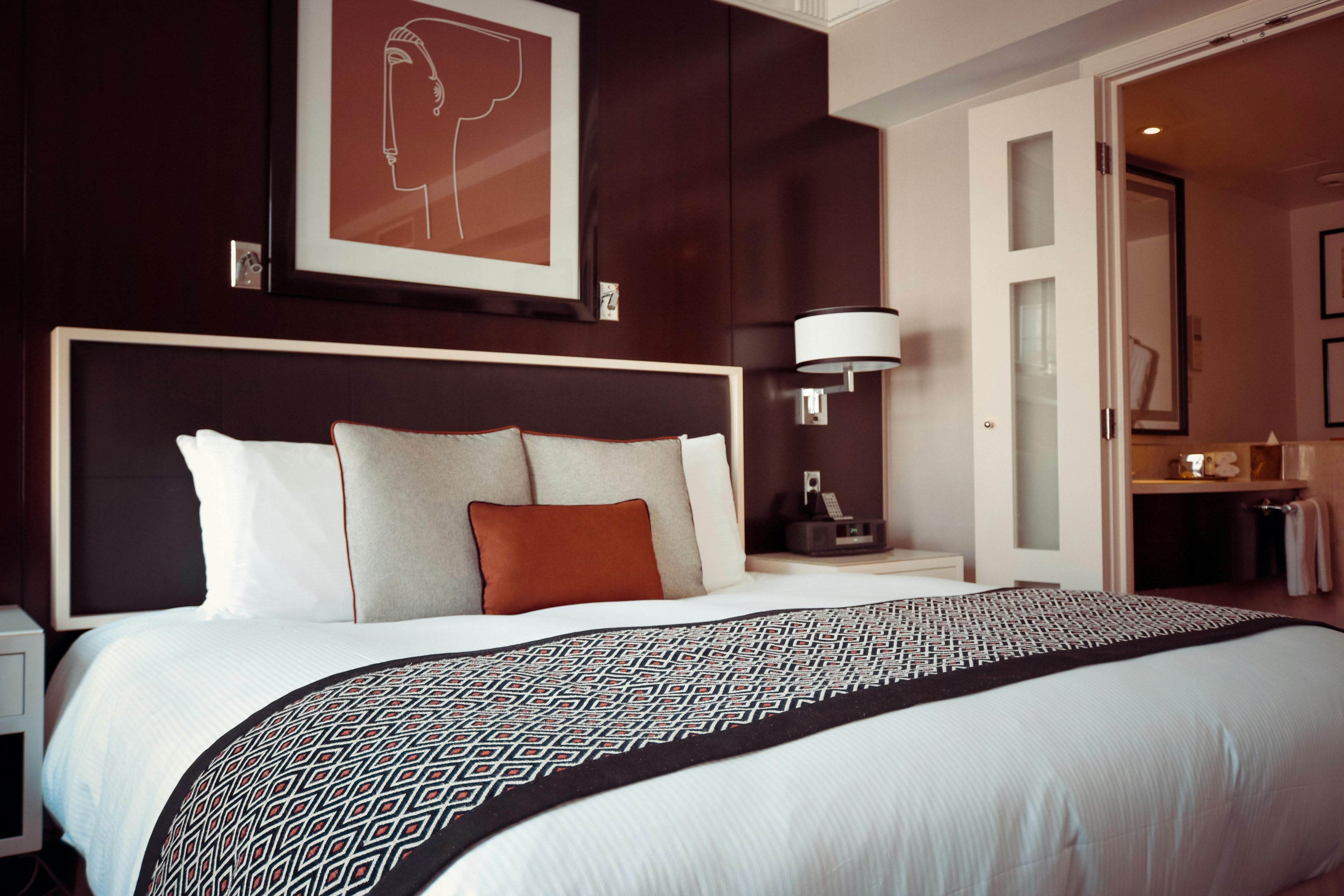
Step 14: Get paid!
Decide when and how you would like your clients to pay. Most cleaners are paid at the end of each cleaning session, but you can also request to be paid weekly or monthly if you visit a particular client’s home frequently.
Bank transfer is the most popular payment method because it’s convenient and secure for both parties, but some clients prefer to pay in cash. If you have cash paying clients, it’s a good idea to keep some change handy in case they don’t have the correct money on the day.
Be sure to communicate your preferred payment terms and come to an agreement with your client before starting work to avoid any misunderstandings or payment delays. You don’t want to end up chasing unpaid invoices or waiting weeks to receive your money.
When you partner with One Less Thing, you’ll be paid directly by the client at the end of each clean, either in cash, or via bank transfer.
We don’t make any deductions from your pay, as we’re paid separately by each client, so the money you earn is all yours.
Important! Remember to keep records of all payments for tax purposes.
Step 15: Consider offering additional services
Once you have a solid client base, you might want to consider adding additional services that can generate extra income.
Popular add-ons that clients will pay extra for include:
- Spring and deep cleaning
These services tackle areas that are generally not covered in your average home cleaning routine, eg. emptying and cleaning inside kitchen cupboards.
- Carpet and upholstery cleaning
This requires specialist training, equipment and chemicals and is often accompanied by a deep clean or spring clean. You may also need a dedicated vehicle to transport carpet cleaning machines between clients.
- Oven cleaning
Deep oven cleaning uses harsh chemicals that require specialist training and equipment. You can include this as part of your regular house cleaning, or offer it as a separate service
- Biohazard cleaning
This type of cleaning deals with biological hazards, such as blood, bodily fluids, mould, and potentially infectious materials. Biohazard cleaning requires full PPE and specialist training to be done safely.
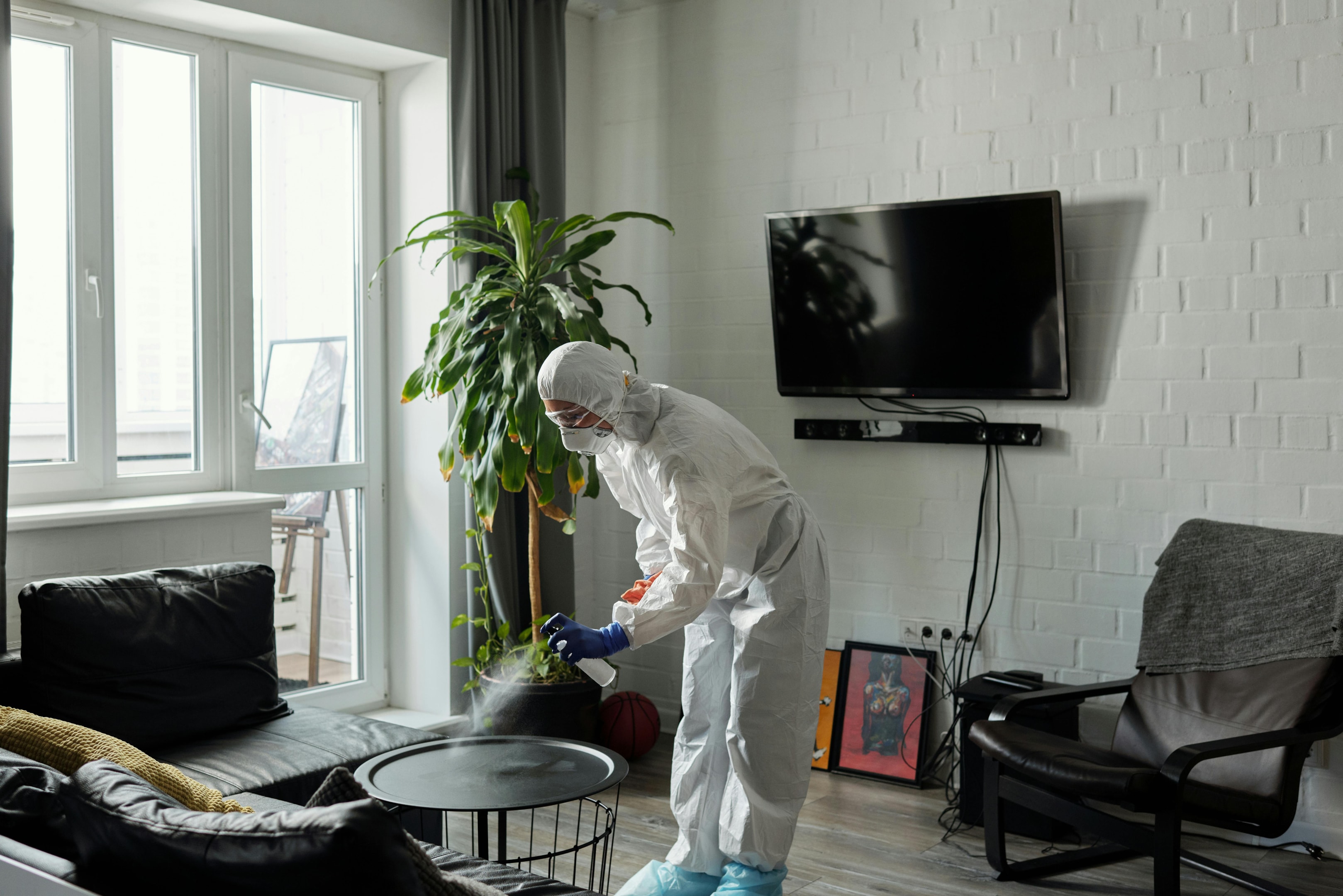
Conclusion
As we’ve discussed in this post, there’s much more to being a great cleaner than just knowing how to clean. But if you possess the skills, determination and drive to succeed, becoming a self-employed domestic cleaner can be a fantastic career choice.
You can choose to go it alone, or partner with an agency like One Less Thing. By working with us, you’ll benefit from:
- A steady flow of clients, so you can focus on cleaning rather than marketing.
- Excellent rates of pay (well above minimum wage.)
- Flexible working hours and locations, so you can choose when and where you work.
- Free insurance and DBS checks, saving you hundreds of pounds each year.
- A dedicated support person who is on hand to help with client queries, answer your questions, and provide assistance when you need it.
If this sounds good to you, visit our website now to find out how much our cleaners earn in your area, and take the next step towards an exciting and rewarding new career!
FAQs
- Do I need a DBS check?
Yes. Generally people will want to see a basic DBS check before you begin cleaning for them. After all, you’re working inside people’s homes which requires a huge level of trust.
If you clean with One Less Thing, we’ll pay for your DBS check so there’s no cost to you.
- Should I provide my own cleaning products?
This is entirely up to you, however, if you choose to provide your own products, it may affect your earnings unless you factor product costs into your hourly rate.
One Less Thing ensures the client provides the products, so there’s no need to worry about purchasing your own.
- Do I need COSHH training to become a cleaner?
If you’re using your own cleaning products in other people’s homes, you must familiarize yourself with COSHH regulations before you begin work. A great place to start is this post from safeworkers.co.uk.
- How can I avoid burnout ?
Cleaning is physically demanding so it’s important to practice self care to avoid injury or exhaustion. Don’t over schedule yourself, and leave time for meals and rest between cleans.
- Do I need a professional website for my cleaning business?
As a house cleaner you don’t need a website to advertise your services. But if you choose to expand your business in the future and create a cleaning company with a team of cleaners, having a website is a good idea.
- Do I need a business bank account?
There is no legal requirement for sole traders to have a business bank account. However, there are certain advantages to having one. For example, a dedicated business account helps you to keep your personal and business finances separate, making it easier to track expenses, calculate tax owed, and file your end of year self assessment to HMRC.
- If I’m self-employed will I still get a state pension?
Yes, if you register for self-employment you are entitled to a state pension like everyone else. You just need to ensure that you make enough national insurance contributions each year in order to qualify.
- Do I need to register for VAT?
No, you do not need to register for VAT unless your taxable turnover has reached £85,000 or more over the past 12 months.
- What should I do if I want to take time off for holidays or personal reasons?
One of the benefits of self employment is that you get to choose when you take time off. But it’s essential to let your clients know as soon as you book a holiday, and always give plenty of notice for any planned time off.
If you choose to clean with One Less Thing, we’ll arrange cover for you, so you can enjoy your holiday without worrying about work.
